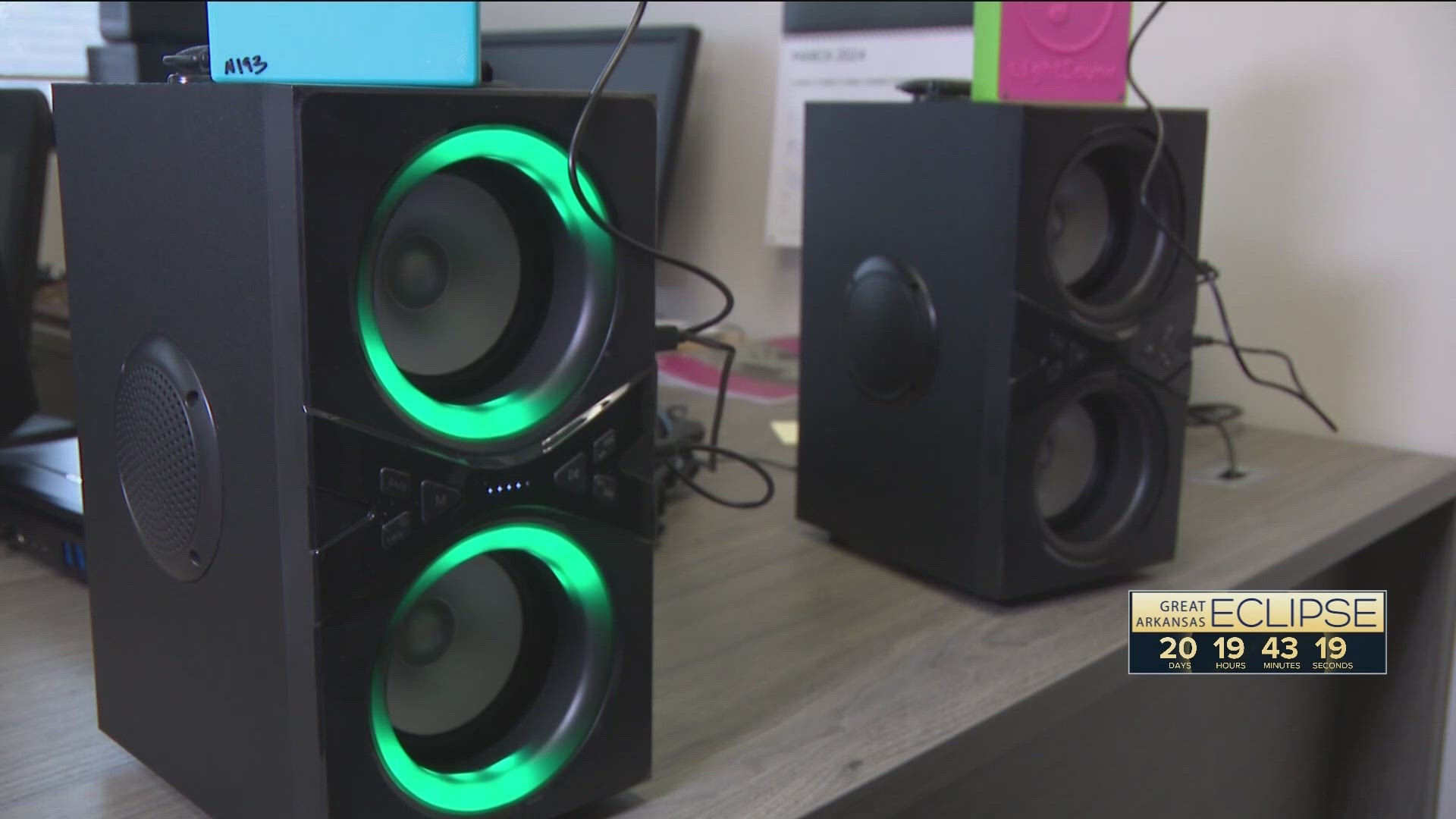LITTLE ROCK, Ark. — The total solar eclipse is now just three weeks away. Although visually spectacular, researchers are trying to find a way to make the event more exclusive to those who are blind or visually impaired.
The University of Arkansas at Little Rock (UALR) recently acquired two LightSound devices that they will use for the April 8 eclipse.
“It started in 2017 at Harvard University,” Gregory Guisbiers, associate professor in the Physics and Astronomy Department at the UALR, said. “They decided to do something about blind and visually impaired people so that they could enjoy the solar eclipse that occurred in 2017.”
According to Guisbiers, the device converts the sun’s light into sound. This process will give people who can’t see the eclipse, to understand the sun and moon’s relationship during the eclipse, with noise.
“At the back of the lights on the device, we have a photodiode,” Guisbiers said. “The photodiode will help us convert the light from the sun into an electronic signal, and that electronic signal will just modulate the intensity level of the sound.”
Guisbiers, who's leading the solar eclipse observation on the Little Rock campus, said his team will also be monitoring temperature, wind speed, and humidity.
Rita Reese-Whiting, an independent living specialist at Sources, was fully sighted until suffering a blood clot in 2007. According to Reese-Whiting, the temperature drop was one of the first things she noticed during the 2017 eclipse.
“It was so eerily still,” Reese-Whiting said. “It was the middle of the day, it should have been really noisy and I got the sense that it was cooler on my skin because the moon was going in front of the sun. It became cooler and much quieter.”
She is also looking forward to listening to NASA’s Soundscapes app and enjoying her surroundings during this year's eclipse.
“So cross my fingers it's not raining or storming or anything,” Reese-Whiting said. “We plan to go outside and I figured I would tune into my surroundings with my other senses."
As for the LightSound devices, they will be utilized at the university’s solar eclipse event on April 8, giving everyone a chance to enjoy the eclipse in their own way.
“It's a once-in-a-lifetime opportunity to watch a total solar eclipse,” Guisbiers said. “If everybody can participate, even better. People should not be restricted because they have a disability.”
Watch 5NEWS on YouTube.
Download the 5NEWS app on your smartphone:
Stream 5NEWS 24/7 on the 5+ app: How to watch the 5+ app on your streaming device
To report a typo or grammatical error, please email KFSMDigitalTeam@tegna.com and detail which story you're referring to.

